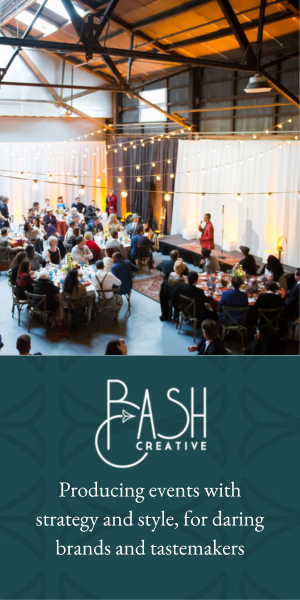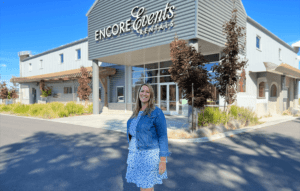Kevin Ebberts is a Co-Founder of RiverNorth Inc., an IT modernization company supporting government agencies, organizations, and programs to access government funding and aid. RiverNorth is based in Ashburn, Virginia and celebrates its fourth anniversary in 2024. In this blog, we discuss the importance of innovation and flexibility within company culture when running your own company.
Kevin started a business because he wanted to build an environment he would like to work in. He saw that processes and procedures can be done better and more efficiently within his sector. Being an employee at the time didn’t allow him to drive the change he wanted, so starting his own venture was a natural next step (read Kevin’s full Founder story here).
“We all move really fast, and we have high expectations for our work product. A lot of the people that have shown success working for our company all have a history of being told that their expectations were too high or they were moving too fast. For us, I’ll always say, ‘Give me your best on this day.’ And that changes from day to day. But whatever you’ve got today, give us that.”
Kevin has found that this flexible mindset helps everyone within his company feel safe in their space of work and prompts the team members to show up as themselves, be authentic, and bring their best to the table. For Kevin and his co-founders there is massive upside to nurturing a high-performing environment.
“We wanted to create a place where you weren’t looked down on for being a try-hard, for doing more than is needed, but we also didn’t want to encourage putting effort into things that don’t have valuable outcomes. In the corporate structure, you do a whole bunch of work just because it would look good or because you can put it in your performance evaluation.
“For us, it is all about how much you can do with the least amount of effort but a high quality outcome. We encourage everyone to be efficient, to be productive, to find better ways to do things. You’re not penalized for doing something really well really quickly.”
This behavior may be seen in some sectors, such as tech, but it’s a completely new approach to working when it comes to the government sector. Implementing it there introduced a real change into procedures and has been a cornerstone of the service RiverNorth provides in helping organizations do better by implementing new approaches.
“We went to the government because that is the industry we know, we understand how it works, and how we can be successful. But we want to run our business more like a product startup, not a government organization. This has to do with how our internal organization functions. We make fast decisions with the information we have at the time. If we need to pivot later, we will, and we’re not going to have six months of board meetings to figure that out. The new service offering will become stale by the time we make a decision on it.”
The concept of doing the best with what you have is very important in the Founder role. So many people who are thinking about starting a business get really stuck on the details, thinking, ‘My brand isn’t perfect’, ‘I don’t have the full design suite’, or ‘I don’t even know what I really want to call this company’, etc. You will never figure things out unless you get started. You can rename your company a thousand times. You can change your brand as much as you want. Just do the work, do the best you can with what you have, and you will learn lessons along the way. There will be a lot of iterations. The important thing is to have core values to keep you grounded and the drive to aspire for change.
“We didn’t even know what we wanted to sell before we started. We knew how we wanted it to feel to work at this company. If we pivot, if we decide that we can survive and pay all the same bills selling bracelets on the beach, and we have the appropriate SPF, and everyone’s down for it, cool. That was our joke in the beginning.
“But it is ultimately about providing what we can in this industry, providing the organizational vibes that we want for our employees. We have found this passion for a service that we’re providing to the federal government. Our goal is to deliver a better product for less money. We’re not rolling up in a bus with fifty people for a job that could be done by six.”
What Kevin wanted and aimed for as a Founder was to create a particular environment. To be a good employer. To make people safe. To foster a company culture that he didn’t find within his industry, to push change within this area of business and within his company.
Another revolution RiverNorth implemented is completely transparent financials. Everyone employed by RiverNorth has access to the full P&L and other financial documents. They can even see the salaries of their colleagues. This is a giant and vulnerable step in innovating how federal services, and companies generally, operate.
“Our big thing was that we don’t negotiate salary coming in. Everyone joins the company at the same rate and responsibilities. When that level gets a boost, everyone gets a boost. A big part of what we do is educate people when they come in on how business works and where expenses go. We’re paying them as much as we can afford. This is why they don’t get a raise every year. When we hire someone, we don’t offer to start building five years of raises. We tell them upfront that they’ll get as much as we can afford, which is the same as their colleagues.”
As a Founder, it’s very important to think about the environment you want to create and nurture. You are laying the foundation of what this environment will be in the future. For RiverNorth, it was very much about creating an equal and equitable playing field for their entire team.
“It’s almost impossible to change the environment. If you already work for a company, even if it’s 50 or 100 people, you cannot fix the culture once it’s established.
“Think about those things in the beginning and set the tone very early on of what you want your culture to be like. But also, you can’t dictate how people are going to behave. Your culture evolves with each person that joins the company. They’re bringing their own inputs and experience. The culture is as much about the attitudes, the personalities, the humans. How you operate has to be set, agreed upon, and sustained over time.”
The most successful companies establish values from the beginning that feed into the way their company culture is shaped. Making this a prevalent part of your recruitment and retention process will ensure that with each new addition to the team your company culture will remain intact while providing the company with a workforce diverse in thought, experience, and perspective, as well as aligned in values. For more tips and advice, or simply to learn more about being a Founder, join our welcoming and growing community at Follow the Founder. You can also find us on Instagram or LinkedIn.
Want to Keep Reading?
The 4-Hour Work Week: Timothy Ferris
A blueprint for escaping the traditional 9-to-5 grind by leveraging automation, outsourcing, and lifestyle design to achieve financial freedom and live life on your own terms.































